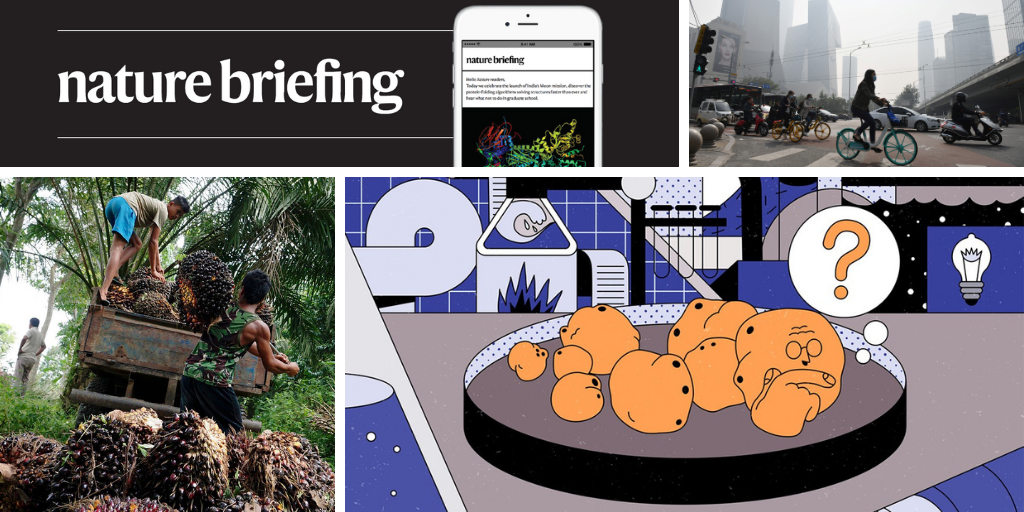Hello Nature readers, would you like to get this Briefing in your inbox free every day? Sign up here
A study has concluded that long-term exposure to air pollution could be linked to 15% of global deaths from COVID-19. Researchers combined health and disease figures with data about global exposure to particulate matter in the air. “If both long-term exposure to air pollution and infection with the COVID-19 virus come together then we have an adverse effect on health, particularly with respect to the heart and blood vessels,” says vascular biologist Thomas Munzel.
In 90 days, the Treaty on the Prohibition of Nuclear Weapons will become international law. The treaty is the first comprehensive prohibition of nuclear weapons, placing them alongside biological and chemical weapons as illegitimate tools of war. In a blog post, research and policy analyst Jennifer Knox tackles frequently asked questions about the treaty.
Union of Concerned Scientists | 5 min read
The US Food and Drug Administration (FDA) seems unlikely to fast-track the introduction of COVID-19 vaccines through an emergency use authorization. The policy would allow vaccines to be given to certain high-risk groups and health-care workers before clinical trials have finished. But FDA officials are voicing concerns that emergency use authorization could make it difficult for the clinical trials to provide reliable data. “If … we don’t get adequate enough information to understand how these vaccines compare with each other and perform in terms of their safety and efficacy, we don’t know how to use them in a public health context,” says former FDA chief scientist Jesse Goodman.
Features & opinion
In neuroscientist Alysson Muotri’s lab, hundreds of miniature human brains, the size of sesame seeds, float in Petri dishes, sparking with electrical activity. These tiny structures are grown from human stem cells and have become a familiar fixture in many labs that study the properties of the brain. But a handful of experiments are raising questions about whether such clumps of cells could become sentient, and how scientists would know if they were. Researchers are now calling for a set of guidelines, similar to those used in animal research, to guide the humane use of brain organoids and other experiments that could achieve consciousness.
An ambitious package of policies, announced in December 2019, aims to make Europe the first climate-neutral continent by 2050. But problems lurk behind the rhetoric, say a group of scientists. Richard Fuchs, Calum Brown and Mark Rounsevell argue that European Union member states are outsourcing environmental damage to other countries while taking the credit for green policies at home. They suggest several steps that could be taken to ensure the Green Deal lives up to its name, including assessing the global impacts of agriculture, better enforcing standards and rolling back bioenergy production.
This Saturday will mark 20 years of continuous human occupation of the International Space Station (ISS). The ISS is unlikely to last another two decades, however — public funding from NASA and its international partners is scheduled to dry up well before that. What will happen next is unclear, but it is possible that the ISS will be taken over by a commercial operator, or scrapped altogether and replaced by privately run commercial space stations. “It’s time for NASA to start setting its sights toward deep space exploration and letting entrepreneurs move in behind us,” says NASA’s director of commercial spaceflight development Phil McAlister.


